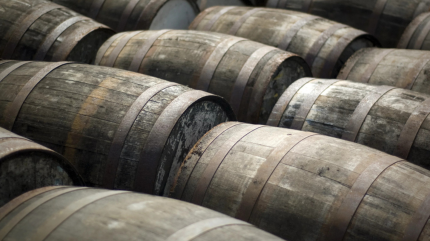
The Scotch Whisky Association (SWA) has called for government support after the volume and value of exports both fell at a double-digit rate in the first half of the year.
The value of Scotch whisky shipments fell by 18% to £2.1bn ($2.74bn) in the opening six months of 2024, according to figures released by the SWA.
Export volumes dropped by 10.2% to 566 million 70cl bottles.
The trade association has called for the UK government to reduce the tax burden on Scotch whisky producers, citing a “damaging domestic impact” of the 10.1% duty increase introduced last year.
“The Prime Minister has promised to ‘back Scotch producers to the hilt’. These figures are a reminder that the success of Scotch whisky cannot be taken for granted and requires government support to ease the industry through short-term volatility,” SWA CEO Mark Kent said.
The value of Scotch whisky sales to the EU fell by 29% to £517.4m, with volumes down 20.7% at 189.9 million bottles

US Tariffs are shifting - will you react or anticipate?
Don’t let policy changes catch you off guard. Stay proactive with real-time data and expert analysis.
By GlobalDataWhen measuring the value of Scotch exports, the largest region is Asia Pacific. The value of sales to the region was down 21.9% at £661.3m. Volumes inched up 0.8% to 184.8 million bottles.
Export volumes to North America slid 13.4% to 67.2 million bottles, contributing to a 7.8% decrease in the value of exports decreased to £485m.
The US is still the Scotch whisky industry’s highest-value export market by individual country. In the opening half of the year, Scotch exports to the US were £421.4m, down 3.5% year on year. US volumes dropped 7.6% to 54.6 million bottles shipped, ranking third behind India and France.
“The H1 figures clearly show that our biggest market, the US, has not fully stabilised following Covid and the damage caused by the 25% tariff on single malt in the US,” Kent said. “The permanent elimination of this tariff, going beyond the current five-year suspension, would remove uncertainty, give the industry increased confidence and allow our full focus to be on growing in this highly competitive spirits market.
France – the second-largest market for Scotch by value – saw export sales fall by 32.6%, dropping to £158.5m. Volumes also decreased by 13.1% to 76.7 million bottles in the first six months of the year.
India is the only market in the top ten where Scotch exports grew in both value and volume terms. In the first six months of 2024, 85 million bottles were shipped to the country, an increase of 17.3%. Export value was up 11.9% to £105.7m.
“It is welcome that the UK government has picked up negotiations on a UK-India trade agreement. Exports to India have been a bright spot in the first half of 2024, despite the current 150% tariff being a brake on future growth,” Kent said.
“Securing a deal which reduces the tariff would be a major boost to the industry and help to mitigate the impact of a slowdown in other global markets.”
In 2023, exports of Scotch whisky fell in both volume and value but remained above pre-pandemic levels.
By volume, exports decreased 19% year-on-year but increased by 3% in comparison to 2019 figures. In value terms, exports were down 9.5% on 2022 to £5.6bn in 2023, but up 14% on pre-pandemic levels (2019).
The SWA put the slide down to a “bumper” year in 2022, as global markets reopened and restocked following the pandemic and global travel retail opened up.



